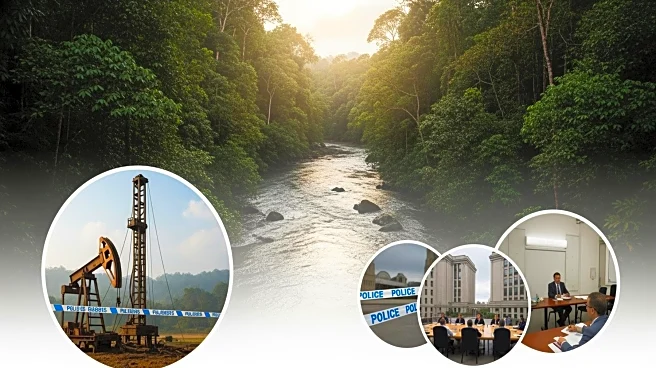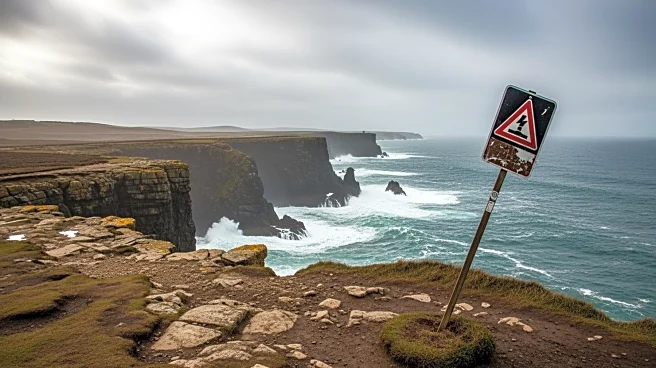What's Happening?
Petrobras, Brazil's state-controlled energy company, has received approval to drill its first exploratory oil well in the Foz do Amazonas basin, near the mouth of the Amazon River. This decision concludes a prolonged standoff with environmental regulators.
The Brazilian Institute of Environment and Renewable Natural Resources (Ibama) granted the license following a rigorous environmental review process. The drilling is set to commence immediately and is expected to last five months. This development comes as Petrobras seeks to explore new oil fields, with existing fields projected to peak around 2030. The approval has sparked controversy, as environmentalists warn of potential ecological risks, including oil spills that could harm the Amazon's delicate marine ecosystem.
Why It's Important?
The approval for Petrobras to drill near the Amazon River is significant for Brazil's energy sector and its economic future. As Brazil's current oil production is expected to peak by 2030, discovering new oil reserves is crucial for maintaining the country's energy independence and economic stability. The Foz do Amazonas basin is seen as a promising area for exploration, drawing interest from major oil companies like Exxon Mobil and Chevron. However, the decision also highlights the tension between economic development and environmental protection. The potential environmental impact of drilling near the Amazon River has raised concerns among environmentalists and indigenous communities who rely on the region's natural resources. The outcome of this exploration could influence Brazil's energy policies and its role in global oil markets.
What's Next?
As Petrobras begins drilling, the company will conduct new emergency response simulations to address potential environmental risks. The outcome of this exploration could determine future drilling activities in the region. Brazil is set to host the UN climate conference, COP30, which may bring additional scrutiny to the country's environmental policies. The government will need to balance economic growth with environmental sustainability, as international and domestic stakeholders monitor the situation closely. The success or failure of this project could impact Brazil's long-term energy strategy and its commitment to environmental protection.
Beyond the Headlines
The decision to allow drilling near the Amazon River raises broader questions about the ethical and environmental responsibilities of energy companies. The potential for oil spills and their impact on biodiversity and indigenous communities highlights the need for robust regulatory frameworks and emergency response strategies. This development also underscores the global challenge of transitioning to sustainable energy sources while meeting current energy demands. The outcome of Petrobras's exploration efforts could influence international discussions on energy policy and environmental conservation.















